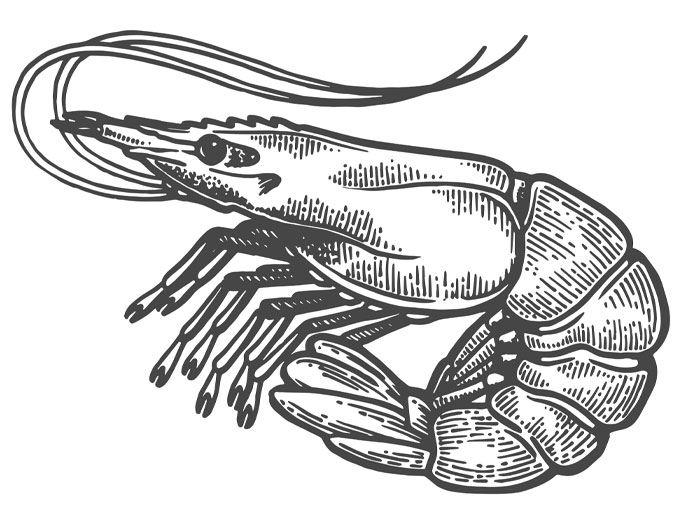FDA Refuses Antibiotic Contaminated Shrimp from 2 BAP-Certified Processors and Continues to Reject Short-Weighted Indonesian Shrimp
November 11, 2024 | 3 min to read
In October, the FDA reported 57 seafood entry line refusals, with 8.8% due to shrimp contaminated with banned antibiotics. Notably, Calcutta Seafoods's previous refusals were removed from the 2024 total, yet shrimp refusals for banned substances remain high. Apex Foods from Bangladesh and Thuan Phuoc Seafoods from Vietnam were implicated inmultiple refusals for veterinary drug residues. Additionally, Indonesian companies were cited for short-weighted shrimp.

The U.S. Food and Drug Administration (FDA) released detailed data regarding fifty-seven (57) seafood entry line refusals in October, of which five (8.8%) were for shrimp for reasons related to banned antibiotics, along with an additional entry line refusal of shrimp for the same reason in September that was not previously reported.
The FDA has also now deleted references to three entry line refusals of shrimp exported by the Indian company Calcutta Seafoods Private Limited for reasons related to veterinary drug residues that were initially reported in January 2024. The chart below removes these three entry lines from the 2024 total. Even with this adjustment, with two months the calendar year left, entry line refusals of shrimp for banned antibiotics in 2024 already are at the second-highest annual amount reported by the agency since 2017.
The additional entry line of shrimp refused for banned antibiotics in September and the five entry lines of shrimp refused for veterinary drug residues in October were attributed to shipments of shrimp from two different Best Aquaculture Practices (BAP)-certified shrimp processors in Bangladesh and Vietnam:
- Apex Foods (Bangladesh), a company that currently operates under a two-star BAP certification for its processing plant (P10025), with an additional BAP certification for a related shrimp farm (F10058), and that was added to Import Alert 16-129 (“Detention Without Physical Examination of Seafood Products Due to Nitrofurans”) on April 24, 2024 for the presence of nitrofurans in its shrimp, had one entry line refused for shrimp contaminated with nitrofurans by the Division of Northeast Imports on September 26, 2024; and
- Thuan Phuoc Seafoods and Trading Corporation (Vietnam), a company that currently operates under a four-star BAP certification for its processing plant (P10196), with an additional BAP certification for a related shrimp farm (F10228), and that was added to Import Alert 16-124 (“Detention Without Physical Examination of Aquaculture Seafood Products Due to Unapproved Drugs”) on October 10, 2024 for ciprofloxacin, enrofloxacin, and sulfamethoxazole in its shrimp, had two entry lines refused for breaded shrimp contaminated with veterinary drug residues and nitrofurans by the Division of West Coast Imports on October 15, 2024, and had another three entry lines refused for shrimp contaminated with veterinary drug residues and nitrofurans by the Division of West Coast Imports on the same day.
Finally, the FDA again reported refusing entry lines of Indonesian shrimp for being short-weighted in October. Specifically, entry lines of shrimp from the Indonesian companies PT First Marine Seafoods and PT Bumi Pangan Utama were refused for “added bulk” by the Division of Northeast Imports and the Division of West Coast Imports, respectively, in October. Both companies currently operate under four-star BAP certifications for their processing plants, with two plants so certified for PT First Marine (P10248 and P10988) and one for PT Bumi Pangan (P10605). Both of these companies are currently listed on Import Alert 99-47 (“Detention Without Physical Examination of Human Food Products that Appear to Be Adulterated for Economic Gain”), with PT Bumi Pangan Utama having been listed for its shipments of shrimp since June 27, 2024 and PT First Marine Seafoods having been listed for its shipments of shrimp since July 26, 2024.
About the Southern Shrimp Alliance
The Southern Shrimp Alliance (SSA) is an organization of shrimp fishermen, shrimp processors, and other members of the domestic industry in the eight warmwater shrimp producing states of Alabama, Florida, Georgia, Louisiana, Mississippi, North Carolina, South Carolina, and Texas.
